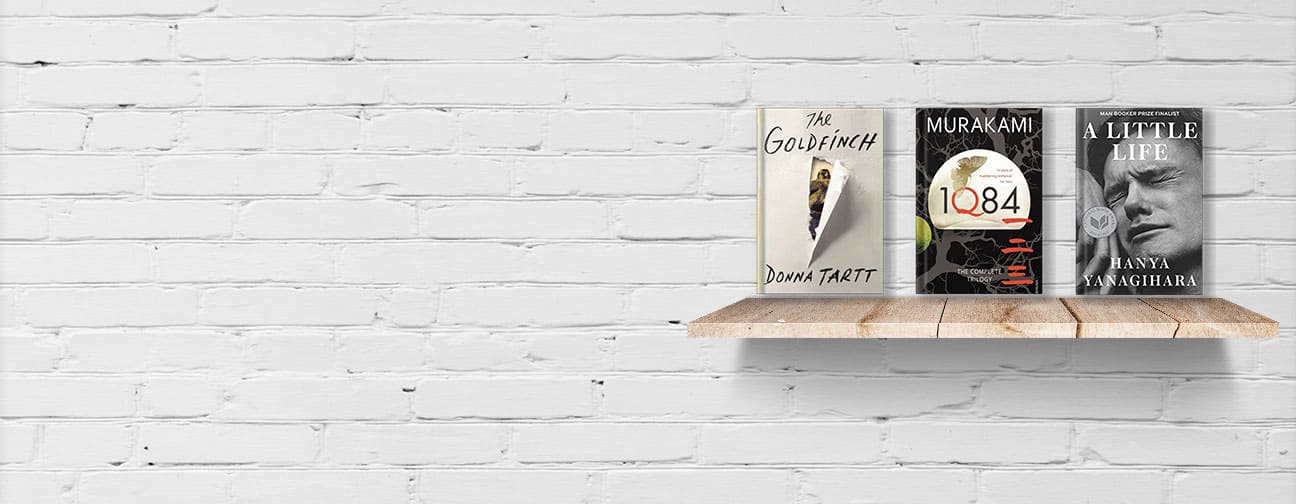As a writer, you always look for ways to improve your craft. Attending workshops, classes, and reading books on writing are great ways to improve your writing skills. And there is an abundance of resources available that can guide you in honing your craft.
But with so many options, it can take time to figure out where to start. To help you narrow your search, we’ve compiled a list of our favorite books on writing books that can help you become a better writer.
If you’re starting out or just looking for new perspectives, check out our list of the best books on writing books.
In this blog, we will be discussing the following topics:
- Books on how to write a book
- Books about writing books
- Books on writing style and language
- Best writing books: Fiction & Non-Fiction
Books on How to Write a Book
If you’ve ever thought about writing a book, you’re not alone. Plenty of people have the same dream. But where do you start? How do you turn your ideas into a finished product?
Fortunately, plenty of resources are available to help aspiring authors take the first step. There are books on how to write a book, of course, but there are also online courses, writing groups, and more.
However, we’ll stick to offering you the best books on “how to write a book” in this blog.

Best 5 Books about Writing Books
Here is a list of books about writing that you can read to improve your writing skills.
Bird by Bird is an excellent book to help improve your writing skills. Anne Lamott offers a unique and helpful approach to writing in her book. Drawing on her own experiences as a writer, she provides insight into the writing process and offers advice on overcoming common challenges.
The book provides practical advice on how to find and develop ideas, create strong characters, and write compelling dialogue. It also offers insight into the creative process and strategies for staying motivated and overcoming obstacles.
One of Lamott’s most important pieces of advice is to “write shitty first drafts.”
This may sound counterintuitive, but Lamott explains that getting the first draft down on paper is often necessary without worrying too much about quality. Once the first draft is complete, it will be easier to go back and make revisions. This approach can help remove the pressure and make the writing process more enjoyable.
Lamott’s book is full of other great advice, making it a valuable resource for any writer.
2. “On Writing” by Stephen King
Have you heard of Stephen King? He is an acclaimed American author who has written over 65 novels and numerous short stories. His most famous works include “The Shining,” “Carrie,” “It,” “The Stand,” and more, all in the genres of horror, supernatural fiction, suspense, science fiction, and fantasy.
But His book, “On Writing,” is all you need.
In this book, Stephen King shares his insights on the craft of writing and how to be a successful author. He covers topics such as generating ideas, overcoming writer’s block, creating believable characters, and structuring a story.
It is a must-read for aspiring storytellers. With down-to-earth advice and plenty of humor, On Writing is a must-read for any aspiring writer.
Quote from the book: “Don’t stop writing.”
“Writing is the act of discovery.” – Natalie
Discovering your voice as a writer can be challenging. If you are experiencing this, then Goldberg’s book is the perfect solution. It is full of practical advice on how to get started with writing, silence your inner critic, and find your unique voice.
But more than that, it is infused with Goldberg’s passion for writing. She writes with such exuberance and joy that it is impossible not to be infected by her enthusiasm.
Reading Writing Down the Bones is like conversing with a friend who knows exactly what you need to hear.
So, pick up “Writing Down the Bones:” for an enriching literary experience! And you will feel grateful to Natalie for sharing her wisdom so generously.
A great place to begin if you’re interested in writing a book is with James Scott Bell’s “Plot & Structure.” This book covers the basics of plot and structure and offers helpful tips on creating an engaging story.
Bell begins by discussing the importance of conflict in a story and how to create believable characters facing challenges. He then discusses the different types of plot structures and how to choose the right one for your story.
Finally, he advises revising your work and preparing it for publication.
“Plot & Structure” is an essential read for any aspiring author.
When it comes to writing, there are few things more discouraging than staring at a blank page. That’s why “I Should Be Writing: A Writer’s Workshop” by Mur Lafferty is a valuable resource for aspiring writers.
Lafferty provides readers with concrete strategies for getting started, staying motivated, and finishing what they start. Perhaps most importantly, she stresses the importance of community in the writing process. And Lafferty guides how to find (or create) a supportive community of fellow writers.
Whether you’re just starting out or you’ve been struggling to complete that novel for years, “I Should Be Writing” is an essential read.
Books on Writing Style and Language
Books on writing style and language provide invaluable insight into grammar, punctuation, and syntax principles that will help hone your skills as a wordsmith.
From comprehensive guides to usage and style to specialized texts on a particular topic, these books can help you refine your writing skills and craft compelling prose.
Writing style and language books come in many different forms. Each takes a different approach to the subject and has its strengths and weaknesses.
However, there are a few that stand out from the rest.
The Elements of Style, by William Strunk Jr, is a classic that covers the basics of grammar, punctuation, and style. It’s short, clear, and easy to read, making it an excellent choice for writers of all levels.
The Chicago Manual of Style is an excellent resource for those who want a more in-depth treatment of the subject. It covers everything from punctuation to citation rules and is used by writers and editors worldwide.
Other popular books include:
- Word Up! by Marcia Riefer Johnston
- Writer’s Market 2020, by Robert Lee Brewer
- Writing Tools: 55 Essential Strategies for Every Writer, by Roy Peter Clark
- Eats, Shoots & Leaves: The Zero Tolerance Approach to Punctuation, by Lynne Truss
- The Sense of Style: The Thinking Person’s Guide to Writing in the 21st Century, by Steven Pinker
Whatever your needs, there’s sure to be a book on writing style and language that’s right for you.

Best Books about Writing Fiction
Learning how to write fiction effectively and accurately can be a daunting task for even the most seasoned writer. Fortunately, a wealth of resources is available to help guide you on your journey.
Best books about writing fiction are invaluable for those who want to write their own stories. And without further ado, here are our best books about writing fiction. From timeless classics written by renowned authors to helpful guides that focus on specific storytelling elements, these titles will give you plenty of insight and inspiration.
Writing the Breakout Novel by Donald Maass is an invaluable resource for aspiring novelists looking to write a successful and marketable first novel.
In this book, Maass gives detailed advice on creating memorable characters, crafting intricate plots and subplots, developing tension and suspense, using dialogue effectively, structuring scenes wisely, and even discovering the right point of view.
He also offers tips and tricks on breaking into the publishing world, creating a compelling pitch, and getting your manuscript noticed by agents and publishers alike.
With practical advice and plenty of examples, this book is an essential guide for any fiction writer.
If you’re looking for a book on how to write informative and inspiring fiction, then you need to look no further than The Art of Fiction by John Gardner.
In this book, Gardner shares his extensive writing knowledge and provides readers with practical advice on everything from developing characters to structuring a story.
He also includes numerous examples from classic and contemporary literature to illustrate his points. Best of all, he writes in a warm and accessible style that makes complex concepts easy to understand.
No matter how experienced or novice you are, The Art of Fiction will help you improve your writing.
The book Letters to a Young Writer is an excellent resource for practical advice about writing fiction. In this slim volume, award-winning author Colum McCann offers heartfelt and insightful advice to aspiring writers.
He covers everything from finding your voice to maintaining a healthy writing practice. Perhaps most importantly, he stresses the importance of taking risks and staying true to yourself.
Letters to a Young Writer is an inspiring read that will leave you eager to start writing your own stories.
“A writer is an explorer. She knows she wants to get somewhere, but she doesn’t know if the somewhere even exists yet. It is still to be created. A Galápagos of the imagination. A whole new theory of who we are.” – [Taken from the Letters to a Young Writer]
In Robert McKee’s book, Substance, Structure, Style, and the Principles of Screenwriting, he argues that screenwriters need to understand the essential elements of a story and how those elements work together.
He emphasizes the importance of understanding story structure and plotting for a script to succeed. He explains how these structural components work together to create a compelling piece of storytelling.
McKee also delves into character development and the importance of understanding motivation, conflict, and dialogue. He highlights how even small details can affect the overall impact of a script by giving characters depth and meaning.
Overall, McKee’s book provides an in-depth and comprehensive understanding of the craft of screenwriting.
For aspiring screenwriters of all levels, Save the Cat is a must-have resource. Written by Blake Snyder, it covers all aspects of screenwriting, from establishing characters to crafting compelling dialogue and story structure.
This book offers an easy-to-follow step-by-step guide to creating a compelling screenplay. It also includes helpful examples of Hollywood movies and the elements that inspire your work.
With its easy-to-follow guide, Save the Cat is an essential resource for anyone looking to write a great screenplay.
It’s the ultimate guide to screenwriting that will help you create your masterpiece!

Books for Writing Non-Fiction
Learning how to write non-fiction can be a challenge, but with the right book, it can be easy. How To Write Non-Fiction: Turn Your Knowledge Into Words is a great resource for writers of all levels.
The book covers everything from choosing a topic to structuring your book. It also includes helpful tips on writing style and voice.
It also includes helpful tips and exercises along the way. If you’re looking for a comprehensive guide to non-fiction writing, this is the book for you.
For any budding non-fiction writer, On Writing Well is a must-read. First published in 1976, the book has since gone through multiple editions and sold millions of copies.
In it, Zinsser provides clear and concise advice on how to write effectively, covering topics such as style, clarity, brevity, and editing. He also offers valuable insights into writing, sharing his experiences as a journalist and author.
On Writing Well is an essential guide for anyone who wants to improve their writing skills, and it remains just as relevant today as it was when it was first published.
The Immortal Life of Henrietta Lacks by Rebecca Skloot is another excellent book for anyone interested in writing non-fiction.
The book tells the true story of Henrietta Lacks, a woman who died of cancer in the 1950s, and how her cells were used to help create the first immortal human cell line.
Skloot does an excellent job of telling Henrietta’s story in a way that is both engaging and informative, and she includes a wealth of information about the ethical issues surrounding the use of human cells in medical research.
As a result, The Immortal Life of Henrietta Lacks is an essential read for anyone interested in writing non-fiction about science and ethical issues.
Conclusion
Writing is hard work, but it can be made easier with the right resources and guidance. The best writing books include inspiring stories and practical advice to help you on your journey.
It doesn’t matter if you’re a beginner or a seasoned writer. You’ll find something to suit you. So pick up a few of these books and start writing!
Regardless of the genre, all writers can benefit from the wisdom contained in these books.
By reading and studying these classics, you’ll gain valuable insight into the craft of writing and be able to improve your work.
So, grab a book, find a comfortable chair and get to work!
You’ll be glad you did.






